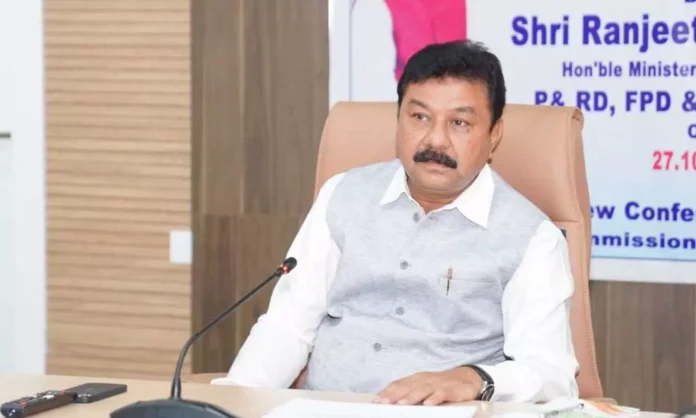Pathsala, Bajali District turned into a flashpoint on July 12 when Assam Minister Ranjeet Kumar Dass encountered loud protests during his official visit.
Members of the Bajali Zila Students’ Union (BZSU) intercepted the minister’s convoy, chanting slogans like “Go Back Ranjeet Dass,” “Down with the Assam Government,” and “Shame on the Inefficient Minister.”
The situation reflects growing anger over the proposed relocation of key government offices from Bajali, a move locals fear will impact administrative services and regional development.
Learn more about Assam’s administrative structure on the official government site.
The Root of Public Anger
At the center of the Ranjeet Dass protest in Bajali lies the state government’s reported decision to shift several offices away from Bajali to other locations.
Local residents and student leaders argue that the plan will deprive Bajali of vital administrative infrastructure and slow the district’s progress.
A BZSU leader said:
“Bajali fought hard for district status. We cannot let our offices be shifted elsewhere. The minister owes us answers.”
The district was carved out of Barpeta in 2020 amid high hopes for local development. Now, many feel those promises are being betrayed.
Protestors Demand Transparency
The protestors, holding placards and shouting slogans, blocked the road near Sadar Pathsala as Dass arrived for his scheduled meetings.
Traffic in parts of the town came to a standstill for nearly an hour.
Security personnel rushed to manage the crowd, ensuring the situation did not turn violent.
Local residents joined the students, demanding that Dass publicly clarify the government’s intentions regarding the office relocation.
A shopkeeper in Pathsala said:
“If they remove our offices, people will suffer. Travel costs will rise, and small businesses will lose customers who visit government offices.”
Minister Dass Tries to Calm Tempers
Facing the angry crowd, Dass attempted to pacify the protestors.
He stated that no final decision had been taken yet about relocating any offices and that discussions were still underway.
Dass assured the gathering:
“Bajali remains important to the government. We will take any decision only after considering the public’s interest.”
However, his statement did little to quell the rising frustration. Protest leaders insisted they would continue their agitation until the government issued an official notification halting the relocation plans.
Bajali’s Quest for Development
The Ranjeet Dass protest in Bajali comes amid larger debates about equitable development in Assam’s districts.
Bajali became a separate district in 2020, raising hopes for better services and governance.
Locals now worry that losing district-level offices could reverse those gains and create fresh hardships.
A school teacher participating in the protest remarked:
“We were told district status would bring government closer to people. Now it feels like a betrayal.”
Political Fallout Looms
The protests could have political consequences for Dass, who is a senior BJP leader and former Speaker of the Assam Legislative Assembly.
Opposition parties have already seized on the issue, accusing the BJP government of neglecting smaller districts and prioritizing political interests over public welfare.
A Congress leader in Bajali said:
“This government talks about development but ignores people’s basic needs. Bajali’s anger is justified.”
Observers believe the incident could influence local sentiment ahead of future elections.
Locals Seek Clarity and Action
As the day ended, the situation in Pathsala calmed, but tensions remained high.
BZSU leaders warned they would escalate their protests if the government did not issue a clear statement soon.
Residents urged Dass to engage in open dialogue and reassure people about Bajali’s administrative future.
A college student summed up the mood:
“We want development here, not empty promises. The government must listen to us.”
The Ranjeet Dass protest in Bajali has become a symbol of deeper anxieties over decentralisation and the future of smaller districts in Assam.
The next few weeks could determine whether Bajali retains its administrative presence or faces a setback that fuels further public discontent.



